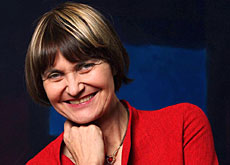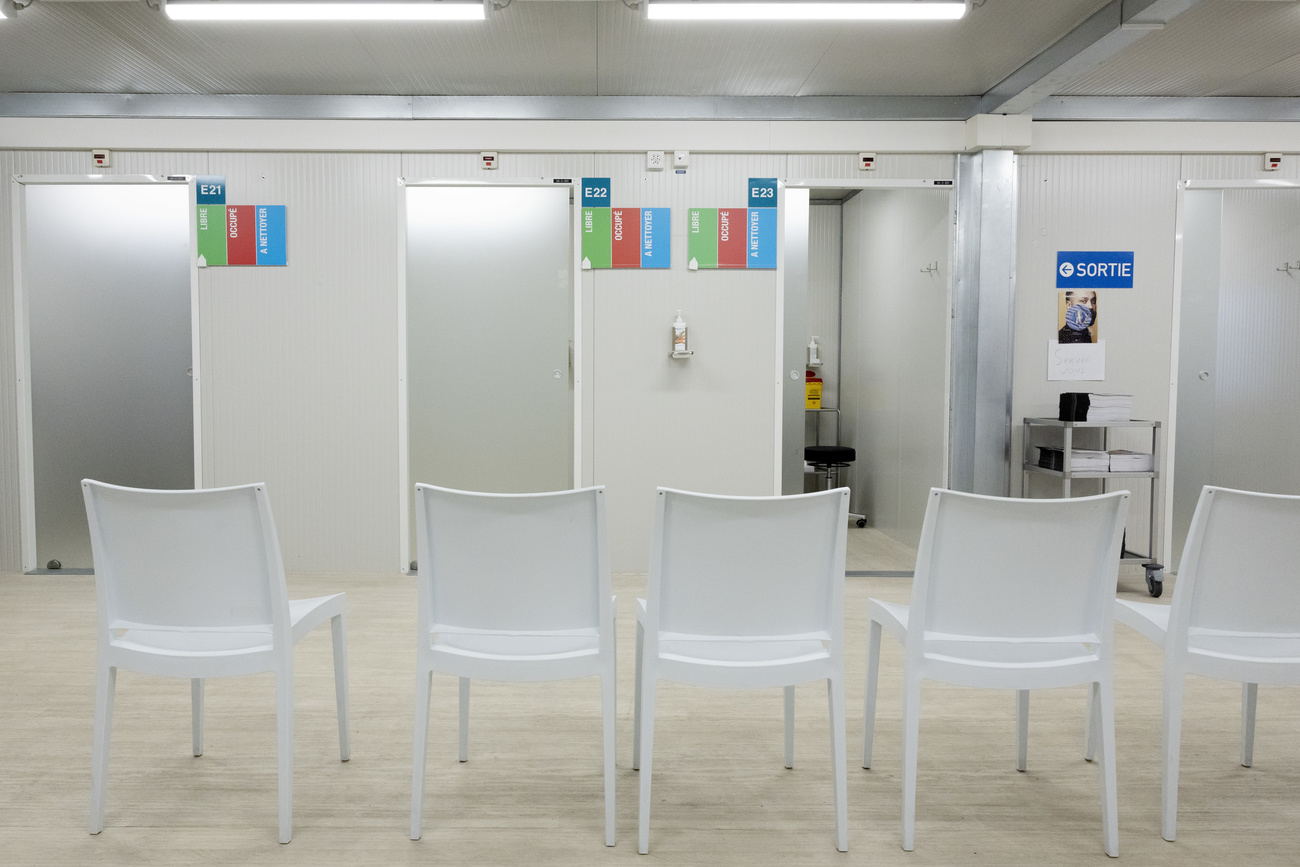
New face on an old block

The Swiss cabinet has a new member - canton Geneva's finance boss, Micheline Calmy-Rey - but to all intents and purposes it's business as usual.
The cabinet’s political complexion hasn’t changed since 1959, and Calmy-Rey’s selection means it will stay that way at least until next year’s general election.
In theory, anyone could have contested Ruth Dreifuss’s cabinet seat; in practice the new minister was always going to be a Social Democrat.
Any other outcome would have scuppered the “Magic Formula” – an informal power-sharing arrangement by which the seven cabinet seats are divided among the four main political parties.
Calmy-Rey, only the fourth woman to serve in the cabinet, was a perfect fit for a government created specifically to represent Switzerland’s diverse political and linguistic landscape.
“Ideal” candidate
The “ideal” candidate had to be a French-speaker (ideally from Geneva), a woman, and of course a Social Democrat.
Calmy-Rey was born in 1945 in Sion, canton Valais, and later settled in Geneva, where she took her degree in political sciences at the city’s Graduate Institute of International Studies.
She entered politics in 1979, when she joined the Social Democrats, and became a member of Geneva’s cantonal parliament in 1981.
Just seven years after entering politics, she made it to the top of the party’s ladder in Geneva and was elected leader.
It goes without saying that a cabinet minister in a power-sharing government has to be acceptable to all parties, and again Calmy-Rey fitted the bill exactly.
Head for business
Although a candidate of the left, she is a self-made business woman, with strong credentials in local politics, and a mother of two (with three grandchildren).
Alongside her political career, she also found the time to run a family books business for more than 20 years until 1997.
Her financial management skills are also impeccable – she has been chief of Geneva’s finance department since 1997, cementing a reputation for reforming public spending, often through unconventional solutions.
She restructured her department, spearheading reforms that are said to have improved productivity and reduced the public deficit.
She also focused on bettering the lot of civil servants, improving their working conditions, by offering them increased job protection and flexible hours.
No soft touch
As finance chief in Geneva, she demonstrated that she was no soft touch – something that would have endeared her to the debt-averse Swiss.
One inspired move was to send 30,000 tax forms to workers who were employed in canton Geneva, but enjoyed the preferential tax rates offered by neighbouring canton Vaud.
In 2001, Calmy-Rey was elected president of the Geneva government, and re-elected as a member of the cantonal government a year later.
One of her chief projects was putting the finishing touches to tax law in Geneva to relieve the financial pressures on the average middle-class family, already burdened by social charges and costs related to educating children and health care.
Reshuffle
Before Calmy-Rey gets started in national politics, she needs a portfolio. She’ll get one next week, when the cabinet is reshuffled. She’ll also get a turn at being president – each cabinet minister becomes top dog for one year out of every seven.
What she won’t have is much power. Under Switzerland’s system of direct democracy, the electorate can, and normally does, vote on every single government decision.
Ironically, the only thing the voters don’t decide is who gets to be in government. But since the ultimate decisions rest with them, it probably doesn’t matter who asks the questions.
swissinfo, Faryal Mirza and Jonas Hughes
Calmy-Rey clinched the race after five rounds of voting.
She is currently president of the Geneva government.
She ran her own business for 20 years.
Her cool demeanour and decisive manner have earned her the nickname “Cruella”.

In compliance with the JTI standards
More: SWI swissinfo.ch certified by the Journalism Trust Initiative







































You can find an overview of ongoing debates with our journalists here . Please join us!
If you want to start a conversation about a topic raised in this article or want to report factual errors, email us at english@swissinfo.ch.